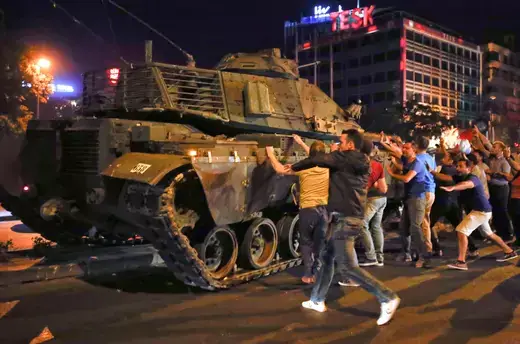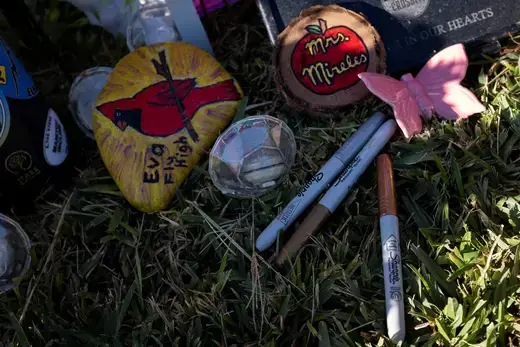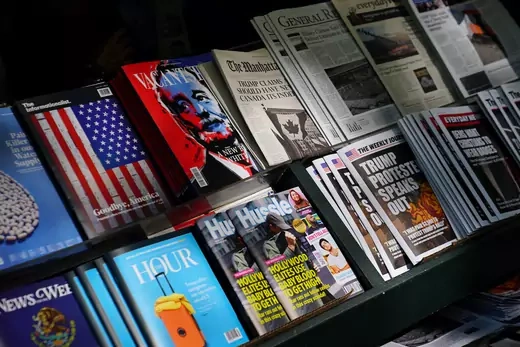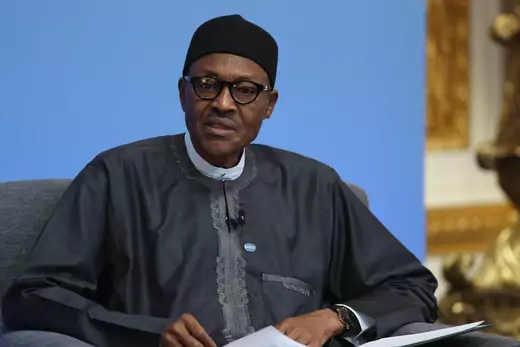- Iran
- Israel-Hamas
-
Topics
FeaturedIntroduction Over the last several decades, governments have collectively pledged to slow global warming. But despite intensified diplomacy, the world is already facing the consequences of climate…
-
Regions
FeaturedIntroduction Throughout its decades of independence, Myanmar has struggled with military rule, civil war, poor governance, and widespread poverty. A military coup in February 2021 dashed hopes for…
Backgrounder by Lindsay Maizland January 31, 2022
-
Explainers
FeaturedDuring the 2020 presidential campaign, Joe Biden promised that his administration would make a “historic effort” to reduce long-running racial inequities in health. Tobacco use—the leading cause of p…
Interactive by Olivia Angelino, Thomas J. Bollyky, Elle Ruggiero and Isabella Turilli February 1, 2023 Global Health Program
-
Research & Analysis
FeaturedRush Doshi is senior fellow for China and Indo-Pacific studies and director of the initiative on China strategy at the Council on Foreign Relations (CFR). His expertise includes China’s foreign polic…
April 15, 2024
-
Communities
Featured
Webinar with Carolyn Kissane and Irina A. Faskianos April 12, 2023 Academic and Higher Education Webinars
-
Events
FeaturedJohn Kerry discusses his work as U.S. special presidential envoy for climate, the challenges the United States faces, and the Biden administration’s priorities as it continues to address climate chan…
Virtual Event with John F. Kerry and Michael Froman March 1, 2024
- Related Sites
- More
February 9, 2024
GlobalIntroduction Since the financial crisis of 2007, central banks around the world have entered into a multitude of bilateral currency swap agreements with one another. These agreements allow a centr…
January 11, 2024
U.S. Foreign Policy ProgramNothing may seem more obvious to supporters of democracy than the need to oppose, punish, and deter coups. But defining a coup, let alone reacting sensibly to one, is difficult for many democratic go…

May 24, 2023
Diamonstein-Spielvogel Project on the Future of DemocracyIn the year since a gunman butchered nineteen students and two teachers at Robb Elementary School in Uvalde, Texas, the United States has suffered at least forty school shootings—perhaps most notably…

August 29, 2022
Diamonstein-Spielvogel Project on the Future of DemocracyIn Tunisia, President Kais Saied's consolidation of power and embrace of autocratic measures threaten the lone remaining success story of the Arab Spring. The Biden Administration should move from rh…
June 16, 2022
United StatesThe problem of fake news has been with us from the beginning of the Republic, and American democracy was even worse at dealing with it then than it is now.

February 24, 2022
NigeriaReleased last month, the 2021 Corruption Perception Index (CPI) confirmed what many Nigerians know intuitively—that a steady stream of official antigraft rhetoric has hardly made a dent on what many agree is the most formidable perennial challenge to the country’s long-term stability. President Buhari’s sentiment to the effect that “if Nigeria does not kill corruption, then corruption will kill Nigeria,” is widely shared. Not only is Nigeria down five places from its 2020 ranking, its total score of twenty-four out of a maximum one hundred points represents a drop for the third successive year, making it West Africa’s second most corrupt country. Guinea-Bissau, still reeling from a failed military takeover in early February, holds the dubious honor of being the most corrupt.

 Online Store
Online Store